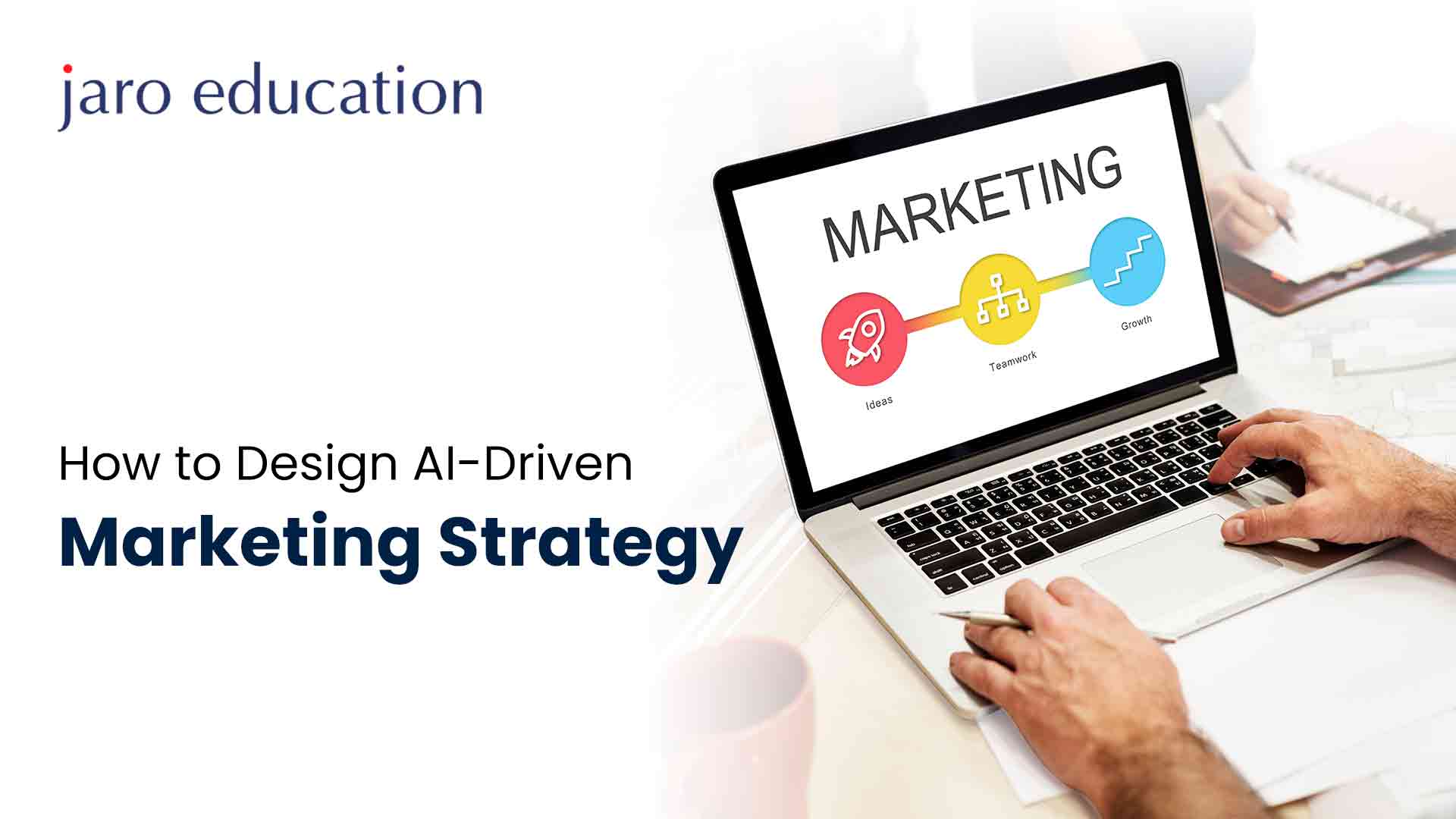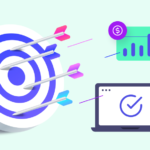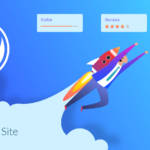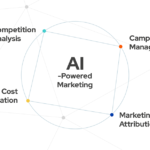AI-powered marketing strategies leverage machine learning and data analytics to optimize campaigns and personalize customer experiences. These techniques drive engagement, improve ROI, and enhance customer satisfaction.
AI has revolutionized marketing by enabling businesses to analyze vast amounts of data quickly. This allows marketers to create highly targeted campaigns that resonate with specific audiences. Predictive analytics can forecast customer behavior, helping businesses make informed decisions. Chatbots and virtual assistants improve customer service by offering real-time support.
AI tools can also automate repetitive tasks, freeing up time for creative work. With AI, marketers can refine their strategies continuously, ensuring optimal performance and higher conversion rates. Embracing AI-powered marketing strategies can give businesses a competitive edge in today’s digital landscape.

Credit: webengage.com
Introduction To Ai In Marketing
Artificial Intelligence (AI) is changing how businesses market their products. With AI, marketing becomes smarter and more efficient. Companies can reach the right audience at the right time. This revolution is known as AI-powered marketing.
What Is Ai-powered Marketing?
AI-powered marketing uses artificial intelligence to improve marketing strategies. It involves data analysis, machine learning, and automation. These tools help marketers understand customer behavior. They can predict trends and personalize campaigns.
AI can analyze large amounts of data quickly. It identifies patterns that humans might miss. This makes marketing decisions more accurate. AI can also automate repetitive tasks. This saves time and reduces human error.
Importance Of Ai In Modern Marketing
AI is crucial in today’s marketing landscape. It enhances customer experience through personalized content. Customers receive tailored recommendations based on their preferences. This increases engagement and sales.
Here are some key benefits of AI in marketing:
- Better Targeting: AI helps identify and target the right audience.
- Efficiency: It automates tasks, saving time and resources.
- Data Analysis: AI processes big data to provide insights.
- Personalization: AI customizes content for each user.
Many companies use AI for different marketing tasks. The most common uses include:
- Customer segmentation
- Behavioral analysis
- Predictive analytics
- Chatbots
| AI Application | Benefit |
|---|---|
| Customer Segmentation | Identifies different customer groups |
| Behavioral Analysis | Understands customer actions |
| Predictive Analytics | Forecasts future trends |
| Chatbots | Provides instant customer support |
In summary, AI-powered marketing is transforming how companies engage with customers. It offers better targeting, efficiency, and personalization. Embracing AI can give businesses a competitive edge in the market.
Benefits Of Ai In Marketing
Artificial intelligence is transforming the marketing landscape. Businesses can now understand customers better and create personalized experiences. Let’s dive into the key benefits of AI in marketing.
Enhanced Customer Insights
AI helps marketers gather valuable customer data. This data includes browsing history, past purchases, and social media activity. It provides deep insights into customer behavior and preferences.
- Predictive Analytics: AI can predict future customer behavior. This helps in making informed marketing decisions.
- Market Segmentation: AI algorithms can segment customers based on various factors. This ensures more targeted marketing campaigns.
| Benefit | Explanation |
|---|---|
| Customer Profiling | AI creates detailed customer profiles for better marketing strategies. |
| Real-time Data | AI provides real-time data for quick decision-making. |
Personalized Customer Experiences
AI allows for highly personalized marketing. Customers receive tailored content and recommendations.
- Dynamic Content: AI customizes content for each user. This keeps customers engaged and satisfied.
- Recommendation Engines: AI suggests products based on customer preferences. This boosts sales and improves customer loyalty.
Overall, AI makes marketing more efficient. It helps businesses connect with customers on a deeper level.
Ai Tools For Marketing
AI tools are revolutionizing marketing strategies. They simplify tasks and improve efficiency. Businesses now use AI for better decision-making and customer engagement.
Ai-powered Analytics
AI-powered analytics provide deep insights. These tools analyze vast data quickly. They help businesses understand customer behavior.
- Predictive Analysis: Predicts future trends and customer actions.
- Sentiment Analysis: Gauges customer sentiment from feedback.
- Customer Segmentation: Divides customers into target groups.
AI analytics tools include Google Analytics, IBM Watson, and Microsoft Azure.
Chatbots And Virtual Assistants
Chatbots and virtual assistants enhance customer service. They provide instant responses and support. These AI tools are available 24/7.
Key benefits of chatbots and virtual assistants:
- Instant Customer Support: Answers queries immediately.
- Personalized Interactions: Tailors responses to individual needs.
- Cost-Effective: Reduces the need for human agents.
Popular AI chatbots include Google Assistant, Amazon Alexa, and Microsoft Cortana.

Credit: www.jaroeducation.com
Data-driven Campaigns
In the world of AI-powered marketing, data-driven campaigns play a vital role. These campaigns leverage data to create personalized and effective marketing strategies. With the power of AI, businesses can analyze vast amounts of data quickly and accurately. This leads to more targeted and successful campaigns.
Predictive Analytics
Predictive analytics uses historical data to forecast future outcomes. It helps marketers make informed decisions. By analyzing past trends, businesses can predict customer behavior. This allows for better planning and strategy development. For example, predictive analytics can identify the best times to launch campaigns.
This ensures maximum engagement and ROI. Predictive analytics also helps in understanding potential risks. Businesses can then take preventive measures. This proactive approach saves time and resources.
Customer Segmentation
Customer segmentation divides a customer base into distinct groups. Each group has specific characteristics. This allows for more personalized marketing efforts. AI can analyze data to create accurate segments. These segments can be based on demographics, behavior, or preferences.
Here is a simple table illustrating customer segmentation:
| Segment | Characteristics | Marketing Strategy |
|---|---|---|
| Young Adults | Aged 18-24, tech-savvy | Social Media Campaigns |
| Parents | Aged 30-45, family-oriented | Email Marketing |
| Retirees | Aged 65+, leisure-focused | Direct Mail |
By targeting these segments, businesses can tailor their messages. This leads to higher engagement and conversion rates. Customer segmentation also helps in resource allocation. Marketers can focus on high-value segments first. This optimizes marketing spend and improves ROI.
Automating Marketing Tasks
In the world of modern marketing, automation is key. It helps businesses save time and focus on creative strategies. Automating marketing tasks allows for efficient and targeted campaigns.
Email Marketing Automation
Email marketing automation is a game-changer. It sends personalized emails to customers automatically. This ensures timely communication and engagement. Below is a table highlighting its key benefits:
| Benefit | Description |
|---|---|
| Personalization | Emails tailored to individual customer needs. |
| Time-Saving | Automated emails save hours of manual work. |
| Improved Metrics | Higher open and click rates due to relevance. |
Using AI-powered tools, you can segment your audience. This ensures each email is relevant. Here are some tasks automated by AI in email marketing:
- Welcome emails
- Birthday wishes
- Abandoned cart reminders
- Follow-up emails
These tasks help build a stronger relationship with customers. They also drive more sales and engagement.
Social Media Automation
Social media automation is another powerful tool. It helps manage multiple platforms with ease. AI tools can schedule posts, engage with followers, and analyze performance.
Here are some key features of social media automation:
- Content Scheduling
- Real-time Analytics
- Automated Responses
- Performance Tracking
AI can analyze user behavior and suggest the best times to post. This ensures your content reaches the largest audience. Automated responses handle common customer queries promptly.
Using these AI-powered strategies, businesses can maintain a consistent online presence. It also saves valuable time and resources. This allows for more focus on strategic planning and creative content.

Credit: www.linkedin.com
Optimizing Ad Spend
Optimizing ad spend is crucial for any marketing strategy. Using AI-powered tools can significantly enhance ad performance. This section will explore how AI can optimize pay-per-click (PPC) campaigns and implement dynamic pricing strategies to get the most out of your marketing budget.
Ai In Ppc Campaigns
AI can revolutionize PPC campaigns by analyzing large data sets. It can predict which keywords will perform best. This helps in reducing wasted ad spend. With AI, you can automate bidding strategies.
AI algorithms can adjust bids in real-time. They consider factors like time of day and user behavior. This ensures your ads appear at the right time.
Below is a table showing the benefits of AI in PPC campaigns:
| Benefit | Description |
|---|---|
| Real-Time Bidding | Adjusts bids based on current data. |
| Keyword Optimization | Predicts and uses high-performing keywords. |
| Budget Management | Allocates budget efficiently across campaigns. |
Dynamic Pricing Strategies
Dynamic pricing adjusts prices based on demand and supply. AI can analyze market trends and competitor prices. This helps in setting the best price for your product.
AI algorithms can also predict customer behavior. This allows you to offer personalized pricing. For example, frequent buyers can get discounts.
Here are some dynamic pricing strategies:
- Peak Pricing: Increase prices during high demand.
- Discount Pricing: Offer lower prices during low demand.
- Segmented Pricing: Different prices for different customer segments.
Using dynamic pricing, you can maximize profits and improve customer satisfaction.
Content Creation With Ai
Artificial Intelligence is revolutionizing content creation. AI tools help marketers create engaging content quickly. They can generate text, optimize it, and ensure it meets SEO standards. Let’s dive into how AI can enhance your content strategy.
Ai-generated Content
AI-generated content saves time and effort. Tools like GPT-4 create high-quality articles. They can write blog posts, social media updates, and even product descriptions.
- Quickly generate blog posts
- Create engaging social media content
- Write accurate product descriptions
These tools analyze vast data to ensure content relevance. They understand trending topics and customer interests. This makes your content more engaging and relevant.
AI-generated content also ensures consistency in tone and style. This helps maintain your brand voice across all platforms.
Content Optimization
Optimizing content for search engines is crucial. AI tools can help here too. They analyze keywords, readability, and SEO metrics. This ensures your content ranks higher on search engines.
- Analyze target keywords
- Check content readability
- Ensure SEO compliance
AI tools also suggest improvements. They identify gaps in your content and recommend additions. This makes your content more comprehensive and valuable to readers.
Here’s a comparison of manual vs. AI content optimization:
| Manual Optimization | AI Optimization |
|---|---|
| Time-consuming | Quick and efficient |
| Prone to human error | Highly accurate |
| Limited data analysis | Extensive data analysis |
Content optimization with AI ensures your content is top-notch. It aligns with SEO best practices and appeals to your audience.
Measuring Roi With Ai
With the rise of AI, measuring ROI in marketing has transformed. AI tools offer precise insights and analytics. This helps businesses optimize their strategies effectively.
Tracking Performance Metrics
AI tools track various performance metrics. These metrics include click-through rates (CTR), conversion rates, and customer engagement. AI can analyze large data sets swiftly.
Using AI, marketers can identify patterns in customer behavior. This helps in understanding what drives conversions. AI tools provide real-time updates, ensuring prompt action.
Attribution Models
AI enhances attribution models. These models track the customer journey across multiple touchpoints. AI can determine which channels contribute most to conversions.
Below is a simple table showcasing common attribution models:
| Attribution Model | Description |
|---|---|
| First-Touch | Credits the first interaction with 100% attribution. |
| Last-Touch | Credits the final interaction with 100% attribution. |
| Linear | Distributes equal credit across all interactions. |
| Time-Decay | Gives more credit to recent interactions. |
AI can also create custom attribution models. These models are tailored to specific business needs. This ensures more accurate ROI measurement.
Future Trends In Ai Marketing
The future of AI-powered marketing strategies promises exciting advancements. Businesses will leverage cutting-edge technologies to improve customer engagement and conversion rates. These advancements will help brands stand out in a crowded digital landscape.
Ai And Augmented Reality
Augmented Reality (AR) is transforming the way customers interact with products. AI enhances this experience by making it more personalized and interactive. Imagine a virtual fitting room where shoppers can try on clothes. AI algorithms recommend styles based on customer preferences and past purchases.
AR and AI integration can also benefit home decor. Customers can visualize furniture in their living spaces before making a purchase. This immersive experience increases customer satisfaction and reduces return rates.
| Feature | Benefit |
|---|---|
| Virtual Try-Ons | Improves customer confidence and reduces returns |
| Personalized Recommendations | Enhances user experience and boosts sales |
| Home Visualization | Helps customers make informed decisions |
Voice Search Optimization
Voice search is becoming increasingly popular with the rise of smart speakers. Optimizing content for voice search is crucial for staying competitive. AI helps businesses understand natural language queries and tailor their content accordingly.
To optimize for voice search, use conversational language. Incorporate long-tail keywords that match how people speak. Ensure your website loads quickly and is mobile-friendly.
- Use conversational phrases
- Incorporate long-tail keywords
- Ensure fast-loading, mobile-friendly sites
Voice search is reshaping local SEO strategies. Many voice searches are location-based. Businesses should focus on local keywords and optimize their Google My Business listings.
- Focus on local keywords
- Optimize Google My Business
- Provide clear and concise answers to common questions
AI can analyze voice search data to identify trends and customer preferences. This data helps businesses refine their marketing strategies for better results.
Frequently Asked Questions
What Is Ai Marketing Strategy?
AI marketing strategy uses artificial intelligence to automate and optimize marketing tasks. It enhances customer targeting, personalizes content, and analyzes data for better decisions. This approach improves efficiency and boosts campaign effectiveness.
How To Use Ai To Create A Marketing Strategy?
Use AI tools to analyze market trends, customer behavior, and competitors. Generate insights for targeted campaigns, personalized content, and optimize ad spend. Implement AI-driven analytics to track performance and refine strategies.
How Is Ai Being Used For Marketing?
AI is used in marketing for personalized campaigns, customer segmentation, predictive analytics, and chatbots. It enhances customer experiences and boosts engagement.
What Is Ai Powered Digital Marketing?
AI powered digital marketing uses artificial intelligence to automate, optimize, and personalize marketing tasks. It enhances customer experiences and improves targeting.
Conclusion
Harnessing AI-powered marketing strategies can transform your business. Embrace these tools to stay competitive and meet customer demands. Stay updated with the latest AI trends. Integrating AI into your marketing efforts ensures efficiency and growth. Start leveraging AI today for a more effective marketing approach.




